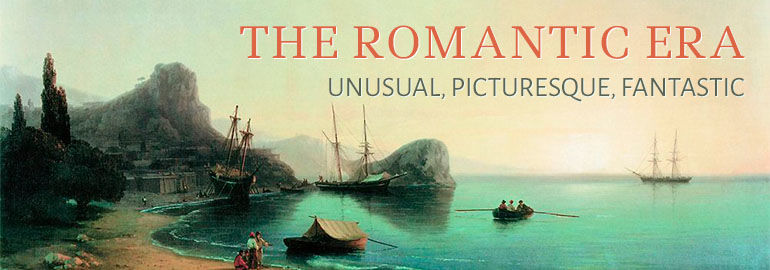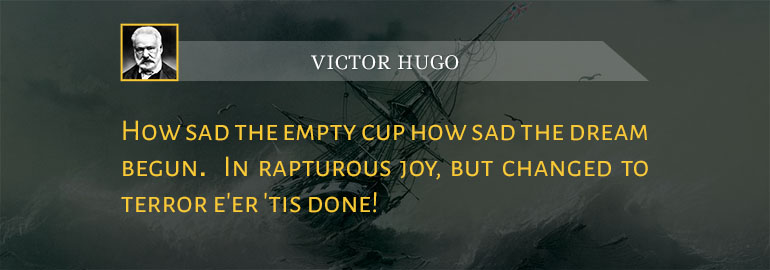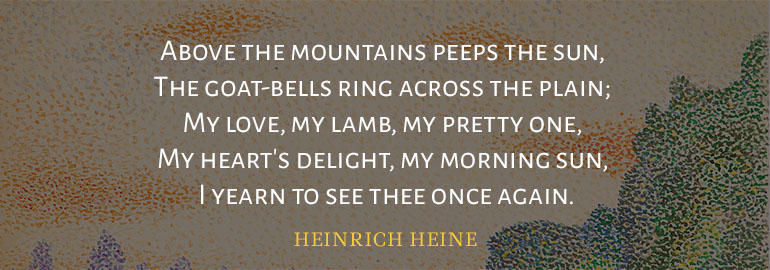The Incredible Romantic Era, How Do We Understand It?

Romanticism is one of the most significant literary movements of the 19th century, it is a certain worldview. The French Revolution, which began on 14 July 1789 with the capture of the Bastille, is most important event in the emergence of the Romantic era. The revolution was one of the key catalysts in the development of modern republican, democratic Europe, and later became a symbol of the struggle for freedom, equality and the fight against grinding poverty.
However, in practice, the revolution led to terror, wars of conquest and deep misery. Many people were thoroughly disillusioned with the outcomes of the revolution, including writers and poets.

Translations from the Poems of Victor Hugo:
http://leopoldclassiclibrary.
The rejection of the society, the protest against the lack of spirituality is reflected in Sentimentalism and Pre-Romanticism. Romantics expressed this rejection more sharply. Although they retained faith in the main ideals of the revolution — freedom, equality, and social justice, their hopes were doomed to disappointment. There was a sense of the discrepancy that emerged between ideals and reality.
Therefore, there are two opposite tendencies which are typical for the Romantic era: on the one hand — reckless, naive enthusiasm, optimistic belief in the victory of lofty ideals; and on the other — an absolute, grim disappointment in life.
The 18th century is the era of Rationalism — the notion that views Reason as the main characteristic of a person. Rationalists believed that with the help of reason, logic, and science, humanity would be able to understand the world and themselves, and to change all for the better.
In the romantics' opinion, the world is divided into two parts: real and ideal. The real world is ordinary, uninteresting, extremely imperfect — a world where the common man feels comfortable. And the second one is the world of a romantic ideal, where everything is beautiful, bright, as in a dream — but it is not real, it is only a picture of the idyll they believe in. Romantics often escape from reality to their imaginary ideal world, to nature, or to art.

Selections from the Poetical Works of Heinrich Heine: http://leopoldclassiclibrary.com/book/selections-from-the-poetical-works-of-heinrich-heine
One of the most important features of the Romantic period is irrationalism. It shows life as the much more complicated process than it seems to the human mind. Life is unpredictable, incomprehensible, contradictory, in one word — irrational. And the most irrational, mysterious part of life is the human soul. People are very often governed not by an enlightened mind, but by dark, uncontrolled, sometimes destructive passions. In one soul there may illogically co-exist the most opposite of aspirations, feelings, and thoughts.
Romantics, following the Sentimentalists, brought to the forefront feelings, emotions that are not amenable to logic. Romantics are those who act contrary to reason and calculation. From their point of view, emotionality is the most important feature of human nature. Romantics do not like ordinary things and strive for everything unusual, atypical, original, perfect, and exotic. Romantics love an exotic atmosphere: distant hot countries, seas, mountains. Romantic heroes always differ from the crowd, they are special. The main conflict of this era is the confrontation of a lonely romantic hero and ordinary people.
Many of them believe in destiny and fortune — they believe that some mystical powers control their lives. Therefore, in romantic works, there are many mysterious predictions and signs that always come true.
Undoubtedly, the highest expression of humanity for romantics is love. Love is the highest happiness, the main goal of life. Romantics understand lovers as two halves of a single whole.
Childe Harold's Pilgrimage: A Romaunt by George Gordon Byron:
http://leopoldclassiclibrary.
In this way, romantics cried out against the canons and limitations of classicism. Embracing various areas of human activity, this new type of consciousness was associated with a radical change in the entire system of ideological orientations and values. Сertainly, the aesthetics of romanticism with its emotional elevation, strong and deep feelings can not irretrievably sink into oblivion. The works of this literary movement will ever be of interest to readers.

